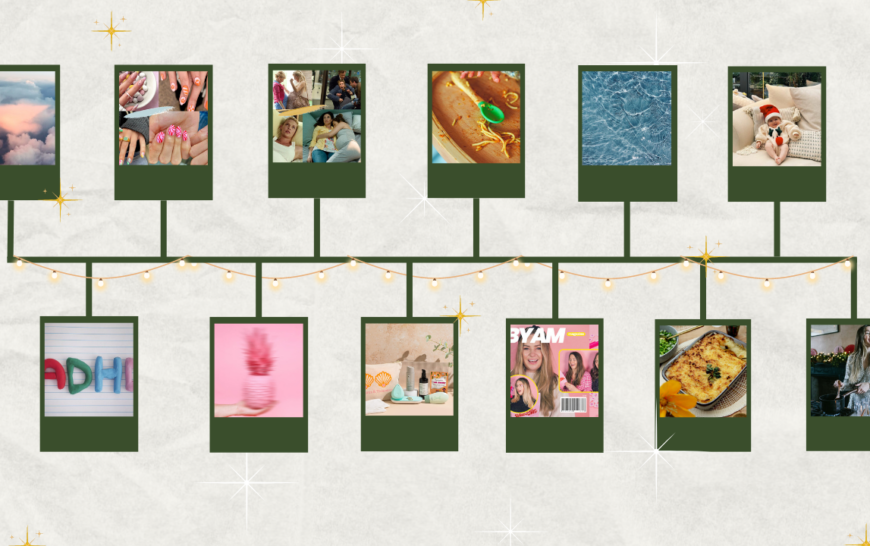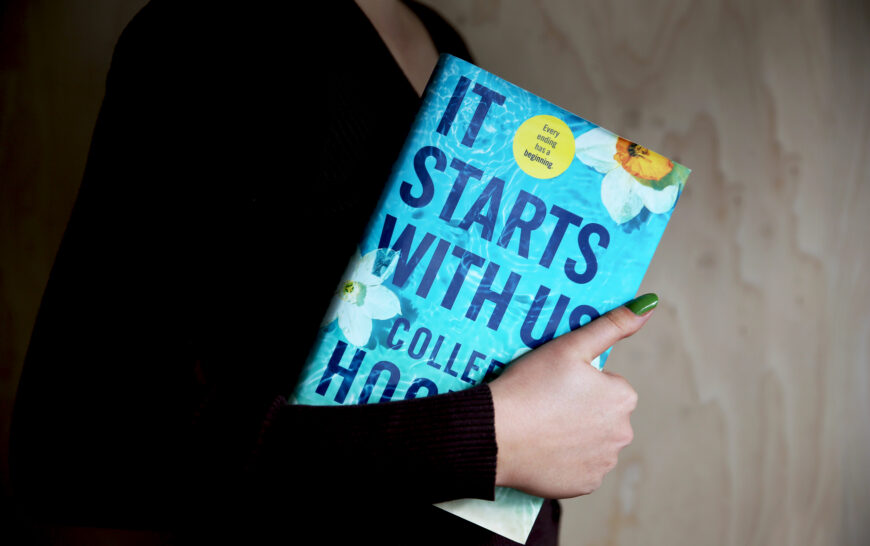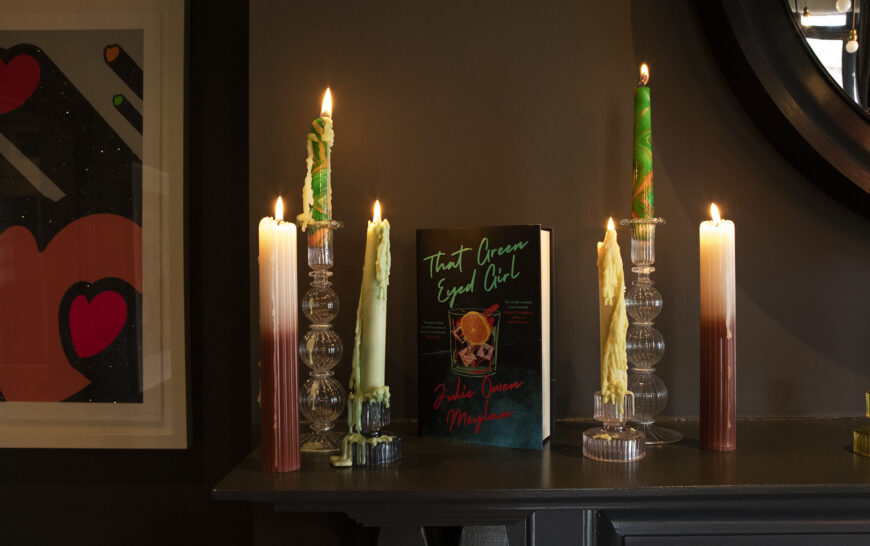
First off, how has your 2021 been?
2021 has been fast and busy! I can’t believe we’re already in November and the end of the year is approaching. It’s been a strange year for certain, going from the lockdown at the start of the year to the gradual reintroduction of “normal life” back into our daily lives. I feel really fortunate that I’ve been able to pursue so many of my creative goals and ambitions this year, from signing with a new agency for representation for my writing, doing more acting work alongside my writing and establishing my own theatre company, Fury Theatre, focused on “female stories told with fire”. I’ve also had the pleasure of working with brilliant people, and having the support of friends and family along the way, which I’m so grateful for.
Can you tell us about your background and journey to scriptwriting?
I grew up writing stories and poems – and even plays when I got a bit older – but I never really knew that I wanted to be a writer. It didn’t feel like something “someone like me” could do. I was from a small village in Lincolnshire in the Midlands and didn’t know anyone who’d made a successful career doing something like writing. Theatre was my route into creativity from a young age, first as an actor and then realising that I loved writing scripts (and getting to tell other people what to do on stage!) I studied English Literature at the University of York and after graduating, decided to give writing a go and see how it went.
It’s been a long process since then, filled with lots of twists and turns, but I wouldn’t change a thing as I learned so much from each of those ups and downs. When I discovered screenwriting and started collaborating with filmmakers, I really felt like I’d found a new way of telling stories that excited me hugely. I started writing short films initially, before plunging headfirst into feature films with only limited experience – but a strong sense of the kind of stories that I wanted to tell, about women, places and emotional experiences that I felt I hadn’t seen depicted on screens with the complexity they deserve.

Your film Lapwing releases this month, can you tell us what an audience can expect?
Lapwing is a psychological historical thriller that has some challenging themes at its heart, from emotional abuse and coercive control to bigotry, toxic masculinity and misogyny. Set in 1555, on the rural coast of Lincolnshire, Lapwing is the story of a young non-verbal woman, Patience, who lives a suffocating life under the tyrannical thumb of her brother in law. When she meets an illegal traveller, a young man called Rumi, she starts to imagine a different life for herself. But this brings her immediately into conflict with her family and her community – particularly her toxic brother in law who will stop at nothing to keep Patience close.
What gave you the inspiration for writing Lapwing?
Lapwing actually started life as a short film. I have always been inspired by the past in my creative work, and also by isolated rural locations, and these things came together with a very vivid image of a young woman in Tudor dress covered in blood. That probably gives a sense of the tone and some of the themes of Lapwing – violence was always at its heart. From there, I developed the other elements of the character, world and story on my own initially, and then with Philip Stevens, the director of the feature. Lapwing was always going to be a story about a young woman finding her voice in some way and rebelling against the constraints placed upon her, which, like for so many young women, felt like a very resonant story that I could connect with and empathise with.

The movie is set in 1555, how much research goes into writing something set so far back in history?
A lot, in all respects of the process. Not just for me as a writer, but also for the director, the actors and particularly the design team from costume to set and props. It was important to us that Lapwing was as historically accurate as we could make it, and we were really fortunate to be working with incredible creatives who brought the world to life on a minuscule budget. From my perspective, the historical research was really about asking questions about the kind of life Patience would have had, and what her worldview was like compared to the others around her. Patience is in some ways a very modern figure, but she is also a woman of her time.
What is the process like for writing a script and eventually having it become a movie?
Exciting and terrifying in equal measure! It’s a really exciting time when you’re working on a new creative project, but inevitably it’s also scary when you’re handing that script over to other people, who you know will have opinions, ideas and feedback on it. You make yourself vulnerable when you write from the heart and when you write about themes and issues that are really important to you, as I did with Lapwing. But I do believe that the feedback you receive from trusted sources is all about helping you to tell the story you want to tell and ensure it’s communicating itself to the absolute best of your ability. So then the making of the script is a really thrilling process, seeing actors and a whole team of creatives bringing this thing you wrote to life. It can feel quite overwhelming sometimes, and now I’m in the midst of all of the confusing excitement of introducing the film to a wider audience. My mum and dad haven’t even seen it yet, and now it’s getting reviews and will be going out in front of people who I’ll never meet. That’s strange – but totally wonderful.

What are some common misconceptions about scriptwriting and the film industry?
I suppose my biggest misunderstanding about the process of filmmaking was the time these things can take. I was prepared for Lapwing to be a long journey, but it’s been a learning curve for me to really see and feel that play out. Also, it’s been a fascinating process to see how much a film is created and refined in the edit after filming. It makes complete sense retrospectively because the decisions an editor and director make in the edit shape the film, the tone and the way the story is told, but as a writer who’d never experienced a film edit before, that was a really new and interesting experience for me and not one I’d imagined previously.
Do you have to make many compromises on what you had originally imagined when a script gets made into a movie?
Inevitably things have to change on the journey from page to screen, whether that’s because of budget, time constraints on set – or sometimes things just don’t work the way you want them to when you start doing them with real people in a location. I think because of my background in theatre, where there’s always a lot of collaboration between writer, director and actors in the room, I feel quite relaxed about changes that might need to take place. I think it’s about trust – as long as you are working with a team of creatives who understand your story and truly want to put your vision forward along with their own, you’re in safe hands. That was exactly what it was like with Phil Stevens (the director of Lapwing), as I knew that everything he suggested or spoke to me about was to make the story as clear and strong as it could be. Also, Phil always talks to me about changes he might need to make – for whatever reason – which helps enormously, to always feel part of the conversation.
What are you working on now?
At the moment I’m in rehearsals for a new Christmas show for the Durham Gala Theatre. It’s an adaptation of the Nutcracker story called The Nutcracker Re-Miced and told from the perspective of a Rat Pack of three punk-rock loving mice living in the Durham clock tower. It’s been lots of fun to work on something full of life, music and fun – quite a contrast to the darker themes in a lot of my work! I’m also busy working on several new features and TV ideas, as well as developing a new show with my theatre company Fury Theatre.

What does your perfect weekend look like?
Brunch would definitely be involved, along with catching up with friends and family (usually drinking prosecco!) and my partner and I will probably go to the cinema or theatre, head out for a walk around our home city of Lincoln, which is beautiful, and paint together. We both work in the creative industries, so at least some of the weekend will involve some writing for me, and probably rehearsing the current project for the stage as well!
What do you always carry with you?
A tube of Smarties. They’re my essential fuel for writing, and the nostalgia of them always cheers me up!
What would your last ever meal be?
Definitely my mum’s Sunday roast, with my boyfriend’s chocolate mousse for pudding. That’s totally a hint to them, if they feel like cooking for me any time soon!
What is one positive piece of advice you could give to our audience?
Take the time to figure out what it is you want to do, and when you know that – go for it with everything you are. Never hold back and never let fear stop you from doing something. Believe in yourself and push yourself out of your comfort zone. It’s worth it.




